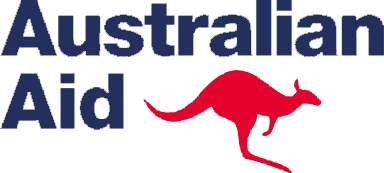- Details
- Category: Berita Media (News)
- Hits: 3277
the Washington Post, 2 August 2014
When African leaders arrive in Washington this week to meet with President Obama, one of the most politically sensitive issues expected to be discussed is the future of the U.S. commitment to global efforts to deal with HIV/AIDS.
For more than a decade, the United States has taken the lead in this fight, providing significant funding — $52 billion so far — to the cause through a program known as the President's Emergency Plan for AIDS Relief (PEPFAR). Begun by President George W. Bush in 2003, it is widely considered to be among the most successful foreign policy initiatives in history, credited with saving countless lives and helping to enhance the nation's image abroad.
The program remains one of the country's most important foreign aid initiatives under Obama, but its budget has been cut significantly in recent years. Administration officials say it's time to start shifting some of the responsibility for funding and managing the epidemic to the affected countries. That has been an unwelcome change for many — disrupting care on the ground for some patients and creating worry among HIV/AIDS advocates that some nations don't have a robust enough medical infrastructure to handle the additional burden.
- Details
- Category: Berita Media (News)
- Hits: 3470
ST Louis Post Dispatch, 2 August 2014
MARTUR, INDIA
Sister Gracy Vailapally tries to keep secret the HIV status of the children she serves.
But often she fails.
"We won't tell that the child is positive," she said. "But somehow from the local people, they know."
A case in point: an 11-year-old boy born to a woman named Naomi.
- Details
- Category: Berita Media (News)
- Hits: 3514
Media for Freedom, 2 August 2014
Joint United Nations programme on HIV/AIDS (UNAIDS) is mobilizing governments and other partners to achieve new set of targets, referred to as, 90:90:90 by 2020, but with current set of tools, approaches, funding commitments, and challenge that HIV poses to the world, the goal seems certainly a bold and ambitious one. Without innovation, at current pace of HIV responses on the ground, we are very likely to fail meeting the targets. We not only need to accelerate the search for better and effective technologies to help fight AIDS effectively but also need to improvise and innovate in rolling out evidence-based approaches.
Innovation can surely help provide more value for every dollar of investment. But then the dollars must be there to help innovation maximise the returns. Hence, besides innovative ways to do HIV programming more effectively we also need to increase HIV financing. The resources for the Global Fund to fight AIDS, Tuberculosis and Malaria (The Global Fund) and PEPFAR, among others, have almost flat-lined over the past 5 years or so. Without sufficient financial investment in HIV programming, it will be difficult to reach the new set of targets by 2020.
- Details
- Category: Berita Media (News)
- Hits: 4052
Timlo, 2 Agustus 2014
 Timlo.net – Pemerintah Kota (Pemkot) Ambon mengantisipasi penambahan jumlah Pekerja Seks Komersial (PSK) di lokalisasi tanjung Batu Merah.
Timlo.net – Pemerintah Kota (Pemkot) Ambon mengantisipasi penambahan jumlah Pekerja Seks Komersial (PSK) di lokalisasi tanjung Batu Merah.
"Mengantisipasi masuknya pekerja seks komersial (PSK) Doly Surabaya, kami telah melakukan pendataan jumlah PSK yang selama ini beraktifitas di lokalisasi tanjung Batu Merah," kata sekretaris kota Ambon, Anthony Gustaf Latuheru, Sabtu (2/8).
Menurut dia, Dinas Sosial (Dinsos) Ambon sebelum Hari Raya Idul Fitri 1435 Hijriah telah melakukan pendataan jumlah PSK yang beraktivitas sebanyak 187 orang.
Para PSK Tanjung Batu Merah, katanya yang melakukan mudik Lebaran ketika kembali ke Ambon dilarang untuk membawa teman atau kerabat untuk dipekerjakan di lokalisasi Tanjung Batu Merah.
- Details
- Category: Berita Media (News)
- Hits: 3502
Independent European Daily Express, 30 July 2014
CARACAS, Jul 30 (IPS) - Venezuela is gearing up to pass a new law to combat discrimination against people living with HIV/AIDS, in a country where the epidemic claims nearly 4,000 lives and infects 11,000 mainly young people every year, including increasing numbers of women.
In the first debate in the single-chamber legislature, where the bill was introduced by ombudswoman Gabriela RamÃrez, it received unanimous backing from both the governing majority and the opposition â€" not a common occurrence in this severely polarised country.
© 2025 Kebijakan AIDS Indonesia

